Programa de Pós Graduação em Oceanografia (PPGO)
- UFPE/
- Ensino/
- Cursos de Pós-Graduação (Mestrado e Doutorado)/
- (PPGO) Programa de Pós Graduação em Oceanografia/
- Destaques/
- Seminário: Seabird Ecological Research
 Destaques Destaques
Destaques Destaques
Voltar
Seminário: Seabird Ecological Research
03/05/2018 09:09
Palestrantes:
Christophe Barbraud (https://www.researchgate.net/profile/Christophe_Barbraud)
& Karine Delord (https://www.researchgate.net/profile/Delord_Karine)
Centre d’Etudes Biologiques de Chizé, 79360 Villiers en Bois, France)
Local: Departamento de Oceanografia da UFPE, Sala de Reunião.
Data e horário: 04 de Maio de 2018 às 14:00h
Resumo
Seabirds present ecological characteristics that make them particularly suitable for testing the theory of evolution of life histories and ecological theories. Seabirds are mesopredators that cover vast marine areas for foraging and also constitutes useful indicators of the impact of global changes on marine ecosystems. Finally, several seabird families are among the most threatened species on earth and knowledge of the threats affecting their populations is needed to implement conservation strategies. In this seminar we will first introduce the fieldwork conducted on masked boobies breeding at Fernando de Noronha, which are being studied as part of project PADDLE. We will then do a brief presentation of the natural history of seabirds, characterized by extreme life history traits within the bird order. We will finally present seabird ecological research conducted by members of our group at Centre d’Etudes Biologiques de Chizé, France. Our program uses seabirds as indicators of global changes in marine ecosystems, mainly in the Southern Ocean but also in some tropical marine ecosystems. Through a network of four observatories from the Antarctic to sub-tropical biomes, the populations of 20 species of seabirds and their distribution at sea are monitored since 50 years. These individually based long term information, combined with shorter term studies carried out on an annual base, especially on the foraging ecology of the species, are used to understand the processes though which climate affects marine ecosystems, as well as to propose conservation measures to limit the impact of fisheries on seabird populations.
Data da última modificação: 03/05/2018, 09:18





